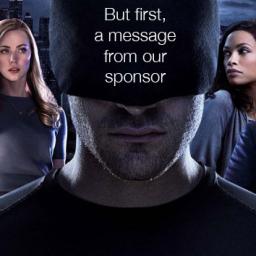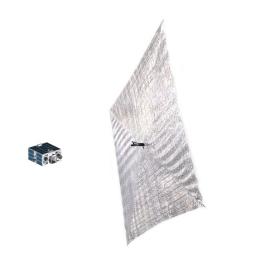
Fifty years ago on Wednesday, NASA astronaut Ed White stepped out of his space capsule and
walked in space for the first time. White's spacewalk was part of NASA's Gemini program. He left the confines of his Gemini capsule while astronaut James McDivitt stayed inside, monitoring the walk. Since White's historic spacewalk (called an extra-vehicular activity, or EVA, in NASA-speak), the space agency has continued to send men and women into the vacuum of space with only a well-designed suit to protect them. In total, NASA astronauts have performed more than 260 spacewalks, including the EVAs that put people on the moon for the first time.
"Without the path first blazed by Ed White - and before him, Russian cosmonaut Alexei Leonov - our current platform in space would not be possible," Pearlman said. Spacesuits and spacewalking methods have also evolved since White's spacewalk in 1965. "When astronauts someday walk on the surface of Mars, they will do so in part because of the journey begun by Gemini 4 and the 20-minute spacewalk performed by Ed White 50 years ago," he said. White died tragically in
the Apollo 1 fire in 1967, along with two other astronauts. You can watch a 30-minute documentary about the history of spacewalks called
Suit Up from NASA now.

Netflix has confirmed that it's publicly testing ads (for now just trailers for Netflix-original series) both before and after shows. What you see as a test subject varies in length and whether or not it's skippable, so it's not certain just how tolerable these promos would be. However, Netflix is quick to note that a lot of things are up in the air, and that you might not see these clips at all
However, the ad trial is likely meant to open the door to new pricing options that do more than tweak the number of simultaneous streams. Netflix could offset price hikes (and undercut streaming rivals) by launching a cheaper, ad-supported tier; alternately, it could compensate for slowing growth by
asking you to pay more for ad-free viewing.
When a group of modern humans began their exodus out of Africa,
Egypt may have been the last stop. Genetic similarities between Egyptians and Eurasians suggests that Pleistocene emigrants traveled through Egypt. If the route to Eurasia passed through East Africa, Ethiopians should be more genetically similar to Eurasians than Egyptians are. But according to Pagani, the opposite is true.
The "out-of-Africa" theory is the most widely recognized model for the movement of modern humans into Eurasia. It postulates that, at some point after the evolution of the first anatomically modern humans in Africa, there was a large migration out of the continent. Paleoanthropologists estimate that the move occurred between 125,000 and 60,000 years ago, but disagree on whether there was a single exodus or many. The prehistoric travelers, who may have used land bridges and simple rafts to cross, became the first modern human populations in Europe and Asia. (Fossil evidence suggests that
Neanderthals already occupied the continent).

After two days sending data back to Earth, a suspected software glitch in
the LightSail spacecraft's Linux-based flight software has silenced the craft. Every 15 seconds, LightSail transmits a telemetry beacon packet. The software writes corresponding information to a file called beacon.csv. When it reaches 32 megabytes it can crash the flight system. The manufacturer corrected this glitch in later software revisions,
but LightSail's software version doesn't include the update. A fix was scheduled to be uploaded, but before that happened, LightSail fell silent.
A reboot should clear the contents of the problematic beacon.csv file, giving the team a couple days to implement a fix. But the outcome of the freeze is "non-deterministic." Sometimes the processor will still accept a reboot command; other times, it won't. Multiple reboot commands were sent to the spacecraft. Nothing has happened yet. Therefore, we have to assume that LightSail is only going to respond to someone pushing the power button. Spacecraft, however, are susceptible to charged particles zipping through deep space. If one of these particles strikes an electronics component in just the right way, it can cause a reboot. This is not an uncommon occurrence. Cal Poly's experience with CubeSats suggest most experience a reboot in the first three weeks. LightSail is capable of remaining in orbit about six months.

It's a dreaded day for many Internet companies: On June 30,
an extra second will be added to the clock, creating the potential to wreak havoc on computer systems not equipped to handle the change. The International Earth Rotation and Reference Systems (IERS) announced an extra second will be added at the end of June to account for a discrepancy between Earth's rotation and the atomic clock. The extra second will be added as the clock strikes midnight universal time, meaning the extra second will come for people in the United States at 8 p.m. EDT. There have been 25 instances since 1972 of an extra second being added.
It's possible that programs not equipped to handle the extra second could have an issue. When the last leap second was added on June 30, 2012, it caused issues with a number of websites, including LinkedIn and Yelp. Mozilla, Reddit and Foursquare all experienced system crashes. Qantas was hard hit, too, with a failure of its check-in system creating flight delays across the network.
Britons may soon face
identity checks to access adult material on the internet, according to discussions between Whitehall and the private sector. "Nobody in the UK wants a centralised identity database," so a new scheme proposed by the pornography industry would see adult sites verifying visitors' identity through banks, credit reference agencies or even the NHS. It comes ahead of an expected new law demanding age checks for online pornography and threatening a block on any sites which don't comply. It is a key Conservative pledge and has widespread support. But critics say the plans are a privacy nightmare, and warn they will require Chinese-style "draconian" levels of internet censorship.
Britain's pornography industry has a lot to gain from the government's plans, critics point out. Tough regulation and stiff competition from abroad have taken their toll on the industry. If overseas sites were blocked it would be boom time for homegrown pornographers. But foreign web companies are beginning to pay attention, too. "Quite how these foreign websites are going to be brought to task, and how quickly they are going to bring it in, I don't know."
Security researchers have
discovered millions of PCs have Computrace software enabled. This software is enabled in the BIOS by default. It allows for a Windows PC to be taken over remotely. Computrace does not enforce encryption when it communicates and it does not verify the identity of the remote server from which it receives commands. Most users are not even aware that this software is installed and enabled in their BIOS.
Nearly every PC has an anti-theft product called Computrace embedded in its BIOS PCI Optional ROM or its unified extensible firmware interface (UEFI). Computrace (aka. Lojack for Laptops) is a legitimate, trusted application developed by Absolute Software. However, it often runs without user-consent, persistently activates itself at system boot, and can be exploited to perform various attacks and to take complete control of an affected machine.

LG Display showed off the scintillating possibilities of OLED technology last year with a rollable 22-inch OLED display. Now, the company has
unveiled a detachable 55-inch display that you can literally stick to a wall using nothing more than a magnet.
OLED displays differ from LED-lit LCD displays as they don't need a backlight to brighten up your living room, which not only allows the displays to offer unparalleled black levels, rich colors, and vivid contrast, but also allows OLED displays to be remarkably thin. The design gets even thinner when you remove the brains of the TV from the equation.
LG unveiled its first commercially viable OLED TV last year in the EC9300 HDTV ($3,500), and has continued to ramp up production, unveiling several new models for 2015, all of which will pack 4K UHD resolution. The company did say that it expects to sell 600,000 OLED panels this year, and 1.5 million next year. Just when (or if) the rest of us will get our hands on one of those futuristic, ultra-thin OLED displays that can be peeled off the wall with ease remains to be seen.
Reinventing the
acoustic coupled modem of the 1970s, Google engineers have found a way for computers to share data through their speakers. Dubbed Tone,
the Chrome app broadcasts the URL of the current tab to any machine within earshot that also has the extension installed. The extension is available now in Chrome's web store. "Tone grew out of the idea that while digital communication methods like email and chat have made it infinitely easier, cheaper, and faster to share things with people across the globe, they've actually made it more complicated to share things with the people standing right next to you. Tone aims to make sharing digital things with nearby people as easy as talking to them," Kauffman and Smus said in a blog post.
"Many groups at Google have found that the tradeoffs between ease and reliability worthwhile-it is our hope that small teams, students in classrooms, and families with multiple computers will too," they said. In Mashable's testing, the extension worked surprisingly well - the extension was able to detect the beeps from a nearby laptop even when the sound was coming through headphones. The extension is also able to share to multiple computers at once, provided each one has the extension installed.
Self-driving cars have become a frequent topic for auto executives as the technology for the vehicles emerges. The market for autonomous technology will grow to $42 billion by 2025 and self-driving cars may account for a quarter of global auto sales by 2035, according to Boston Consulting Group. By 2017, partially autonomous vehicles will become available in "large numbers," the firm said in a report in April.
But self-driving cars may
cause U.S. auto sales to drop about 40 percent in the next 25 years because of shared autonomous vehicles, forcing mass-market producers to slash output, a Barclays Plc analyst said. Vehicle ownership rates may fall by almost half as families move to having just one car. Driverless cars will travel twice as many miles as current autos because they will transport each family member during the day. Sharing autonomous vehicles, acting like a robot-taxi, could push that even lower. Every shared vehicle on the road would displace nine traditional autos, and each pooled shared vehicle would take the place of as many as 18, according to the report.
Automakers are working to overhaul their business models for a world where mobility is being redefined as most of the global population crowds into large megacities during the next two decades. Driverless cars that move in harmony may become essential to keep people and goods flowing safely and efficiently. Embracing the disruption may be the only way to keep pace with alternative forms of transportation competing with automobiles in this changing world. "While extreme, a historical precedent exists. Horses once filled the many roles that cars fill today, but as the automobile came along, the population of horses dropped sharply."
 Fifty years ago on Wednesday, NASA astronaut Ed White stepped out of his space capsule and walked in space for the first time. White's spacewalk was part of NASA's Gemini program. He left the confines of his Gemini capsule while astronaut James McDivitt stayed inside, monitoring the walk. Since White's historic spacewalk (called an extra-vehicular activity, or EVA, in NASA-speak), the space agency has continued to send men and women into the vacuum of space with only a well-designed suit to protect them. In total, NASA astronauts have performed more than 260 spacewalks, including the EVAs that put people on the moon for the first time.
Fifty years ago on Wednesday, NASA astronaut Ed White stepped out of his space capsule and walked in space for the first time. White's spacewalk was part of NASA's Gemini program. He left the confines of his Gemini capsule while astronaut James McDivitt stayed inside, monitoring the walk. Since White's historic spacewalk (called an extra-vehicular activity, or EVA, in NASA-speak), the space agency has continued to send men and women into the vacuum of space with only a well-designed suit to protect them. In total, NASA astronauts have performed more than 260 spacewalks, including the EVAs that put people on the moon for the first time.


